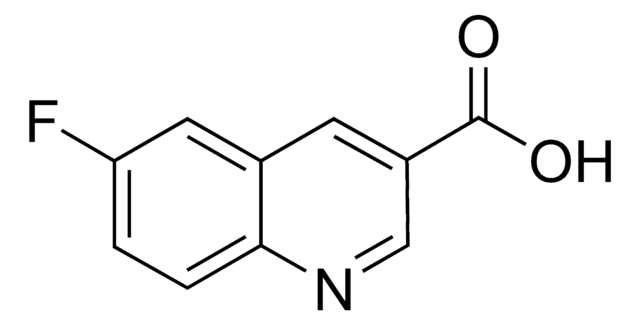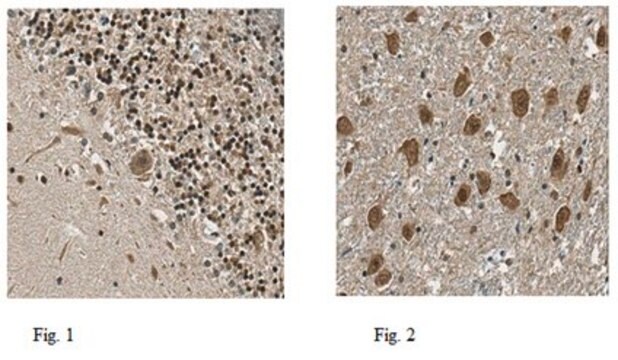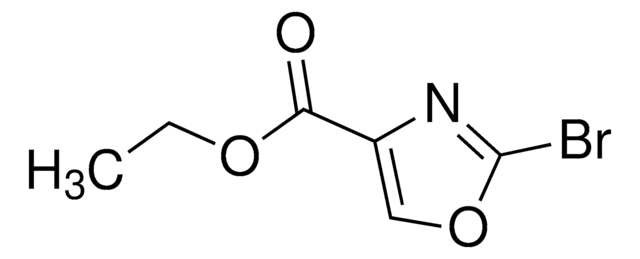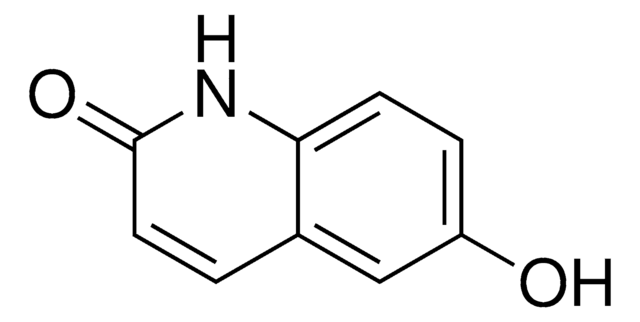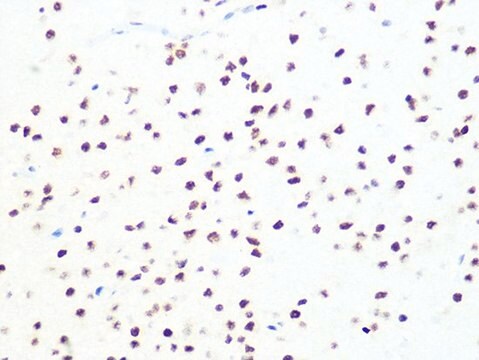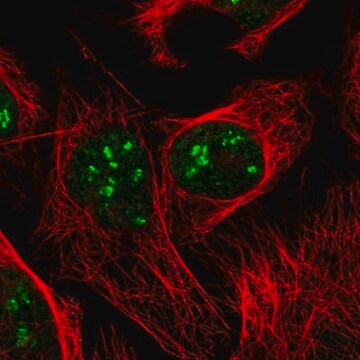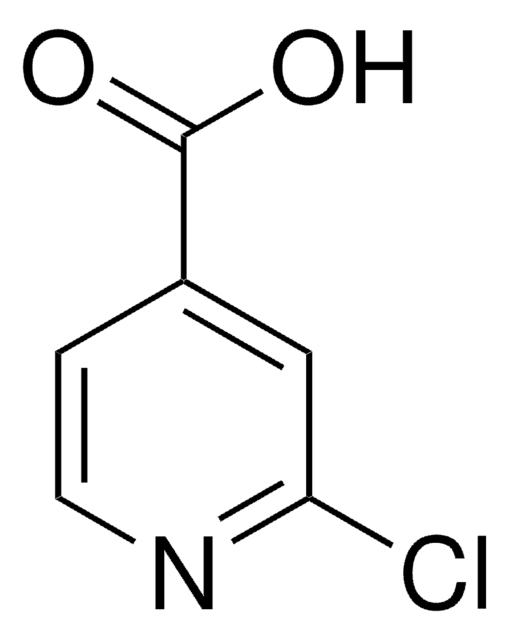ABE2587M
Anti-Dyskerin (Rabbit)
from rabbit, purified by affinity chromatography
Synonym(s):
H/ACA ribonucleoprotein complex subunit 4, CBF5 homolog, Nopp140-associated protein of 57 kDa, Nucleolar protein NAP57, Nucleolar protein family A member 4, snoRNP protein DKC1
About This Item
IP
WB
immunoprecipitation (IP): suitable
western blot: suitable
Recommended Products
biological source
rabbit
Quality Level
antibody form
affinity isolated antibody
antibody product type
primary antibodies
clone
polyclonal
purified by
affinity chromatography
species reactivity
human
packaging
antibody small pack of 25 μL
technique(s)
immunofluorescence: suitable
immunoprecipitation (IP): suitable
western blot: suitable
isotype
IgG
UniProt accession no.
target post-translational modification
unmodified
Gene Information
human ... DKC1(1736)
Related Categories
General description
Specificity
Immunogen
Application
Epigenetics & Nuclear Function
Immunoprecipitation Analysis: A representative lot recovered Dyskerin associated with active telomerase in telomerase-overexpressing HEK293T cells (Courtesy of the laboratories of Dr. Hilda Pickett and Dr. Tracy Bryan, Children s Medical Research Institute, Australia).
Western Blotting Analysis: A representative lot detected Dyskerin in Western Blotting applications (O′Brien, R., et. al. (2016). Cancer Res. 76(12):3604-17).
Western Blotting Analysis: A representative lot detected Dyskerin in mid-S phase HEK293T cells. The signal depleted upon treatment with siRNA against Dyskerin. (Moye, A.L., et. al. (2015). Nat Commun. 6:7643).
Immunofluorescence Analysis: A representative lot detected Dyskerin in HeLa cells. (telomerase positive) (Courtesy of the laboratories of Dr. Hilda Pickett and Dr. Tracy Bryan, Children s Medical Research Institute, Australia).
Western Blotting Analysis: A representative lot detected Dyskerin in HEK293 Cell lysate. The signal was depleted upon treatment with siRNA against Dyskerin (Courtesy of the laboratories of Dr. Hilda Pickett and Dr. Tracy Bryan, Children s Medical Research Institute, Australia).
Quality
Western Blotting Analysis: A 1:500 dilution of this antibody detected Dyskerin in 10 µg of SW480 cell lysate.
Target description
Physical form
Storage and Stability
Other Notes
Disclaimer
Not finding the right product?
Try our Product Selector Tool.
Storage Class Code
12 - Non Combustible Liquids
WGK
nwg
Flash Point(F)
Not applicable
Flash Point(C)
Not applicable
Certificates of Analysis (COA)
Search for Certificates of Analysis (COA) by entering the products Lot/Batch Number. Lot and Batch Numbers can be found on a product’s label following the words ‘Lot’ or ‘Batch’.
Already Own This Product?
Find documentation for the products that you have recently purchased in the Document Library.
Our team of scientists has experience in all areas of research including Life Science, Material Science, Chemical Synthesis, Chromatography, Analytical and many others.
Contact Technical Service